Find Help
More Items From Ergsy search
-
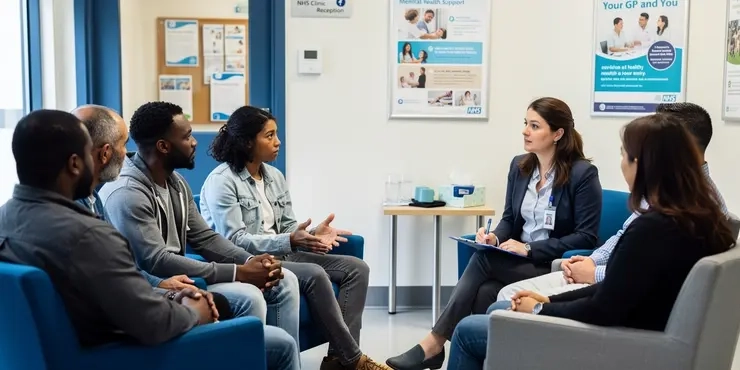
The asylum screening interview
Relevance: 100%
-
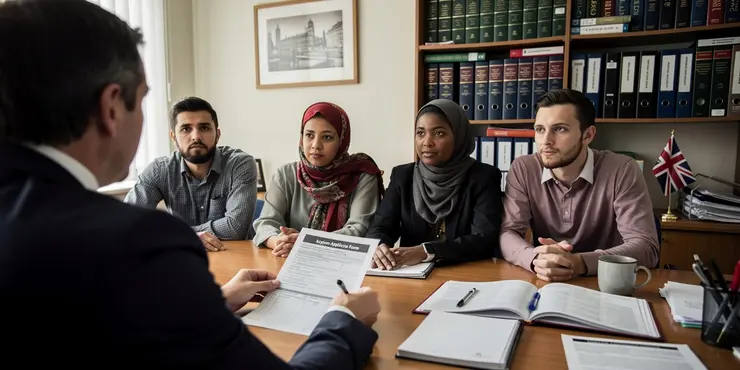
An introduction to claiming asylum in the UK
Relevance: 58%
-
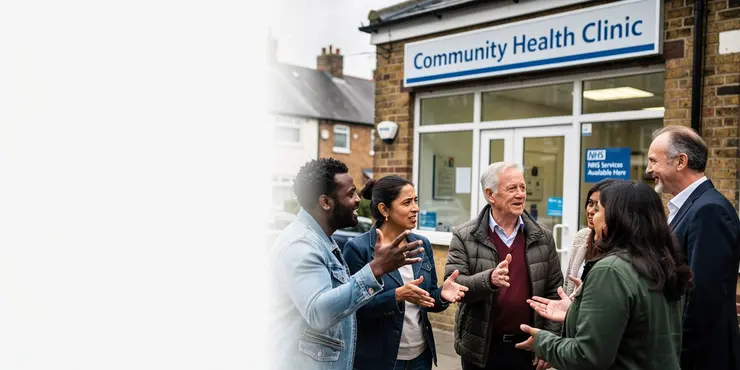
New Asylum Seekers Legislation Sparks Nationwide Debate
Relevance: 34%
-
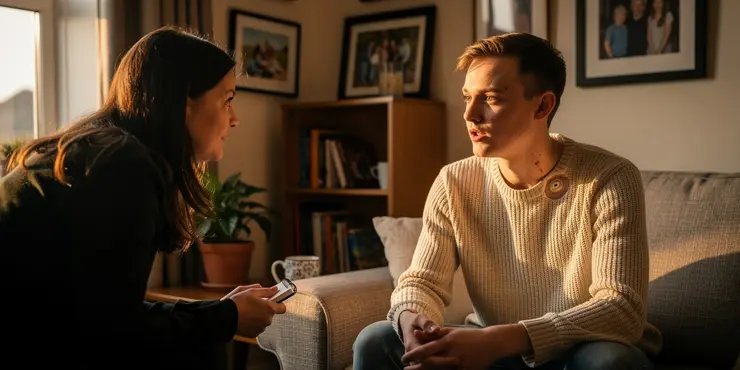
An Interview With JC About His Leukemia And His Leukemia Treatment
Relevance: 22%
-
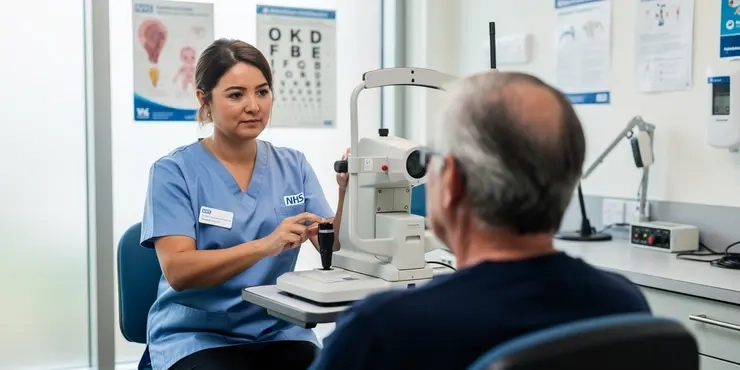
Derbyshire Diabetic Eye Screening - Diabetic Eye Screening
Relevance: 22%
-
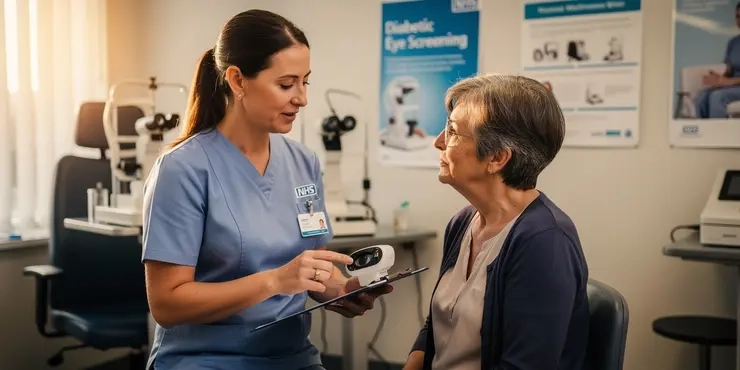
Derbyshire Diabetic Eye Screening - Your Screening Appointment
Relevance: 22%
-
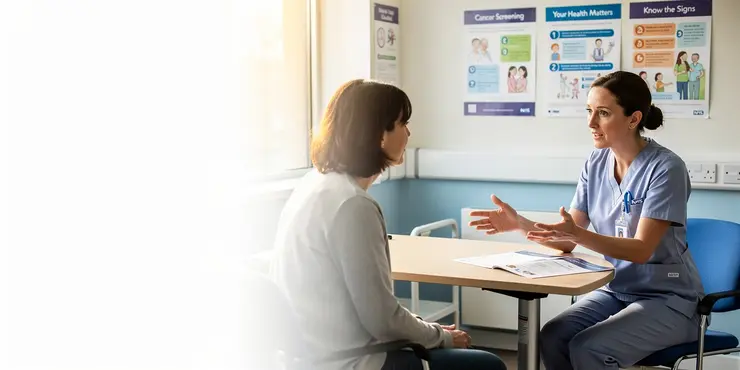
What is cancer screening?
Relevance: 21%
-

Cervical screening: Q&A | NHS
Relevance: 21%
-
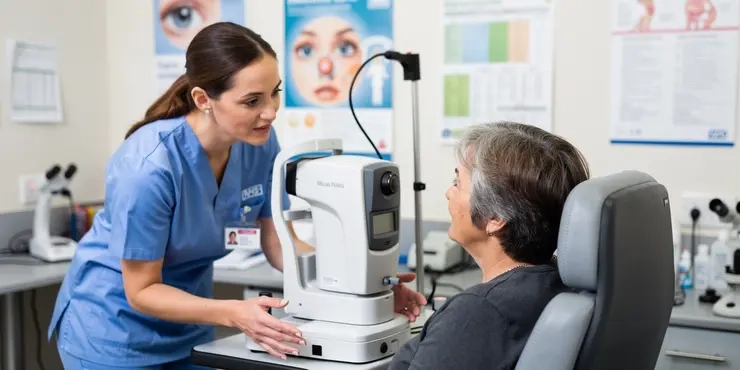
Diabetes Eye Screening
Relevance: 21%
-
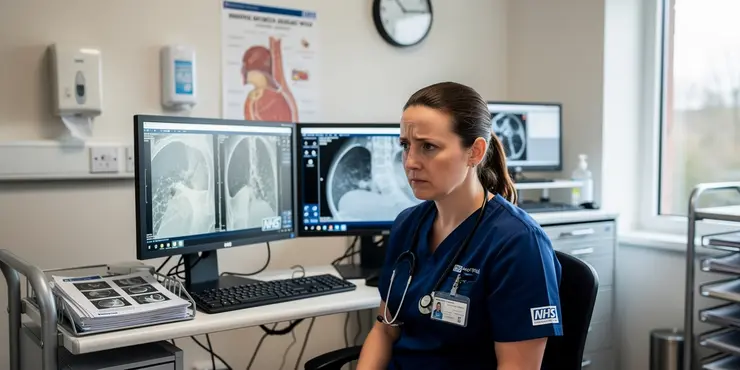
AI Breast Cancer Screening in the UK
Relevance: 21%
-
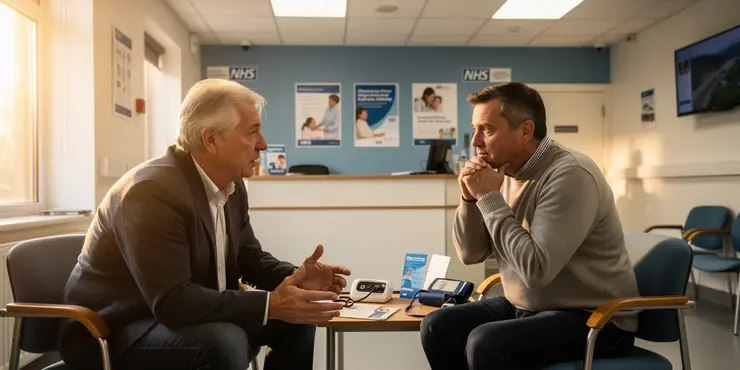
Bowel cancer screening: Alan Titchmarsh and Tommy Walsh | NHS
Relevance: 21%
-

NHS breast cancer screening
Relevance: 20%
-

Are there eco-friendly mosquito screen options?
Relevance: 20%
-
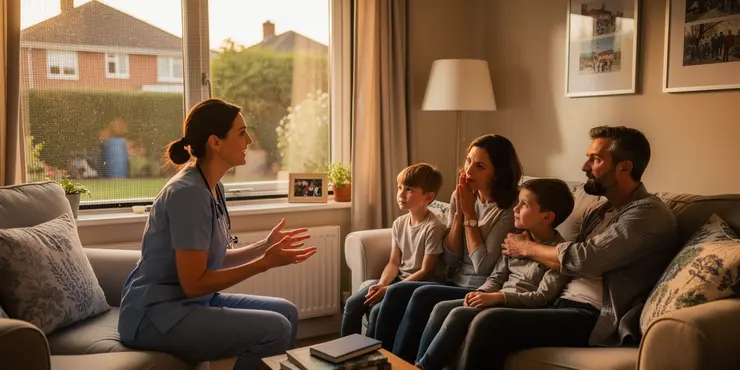
Are mosquito window screens effective in the UK?
Relevance: 20%
-

Are Mosquito window screens effective?
Relevance: 20%
-
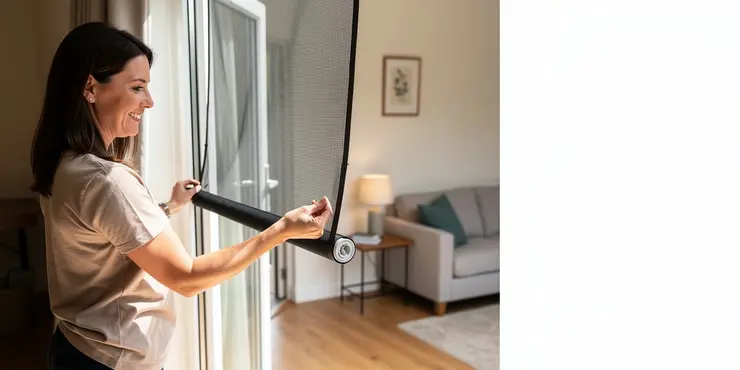
Are there retractable mosquito screens available?
Relevance: 20%
-

The NHS is #StillHereToHelp with cervical screening
Relevance: 20%
-
Is screening painful or risky for my child?
Relevance: 20%
-

What is a skin cancer screening?
Relevance: 20%
-
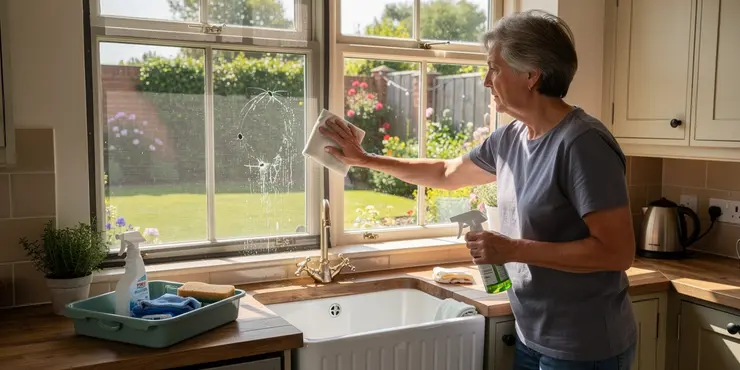
How do I maintain my mosquito screens?
Relevance: 20%
-

Can pets damage mosquito screens?
Relevance: 20%
-
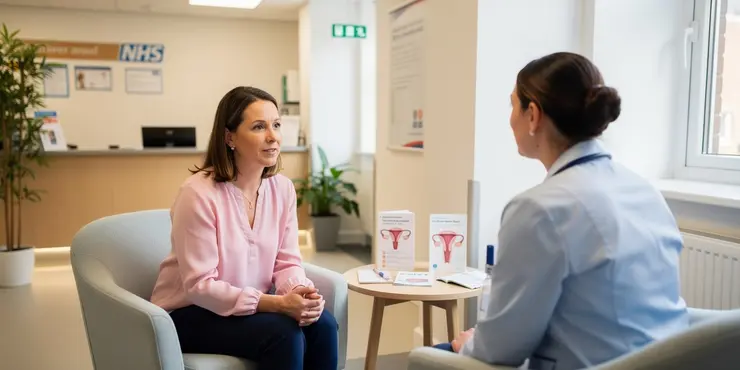
NHSGGC - Cervical Cancer Screening - English
Relevance: 20%
-

What is cervical screening (smear test)?
Relevance: 20%
-

Do mosquito screens add value to my home?
Relevance: 20%
-
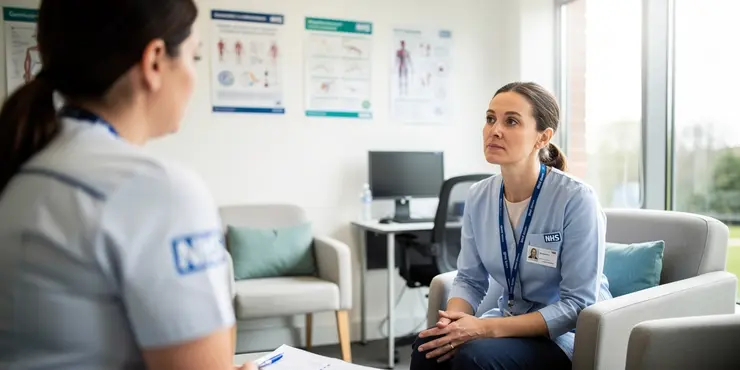
Is genetic screening available for cancer risk?
Relevance: 20%
-
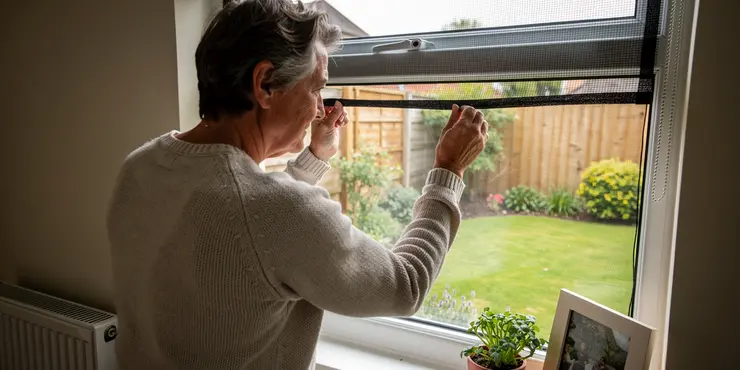
Are mosquito screens effective against midges?
Relevance: 20%
-
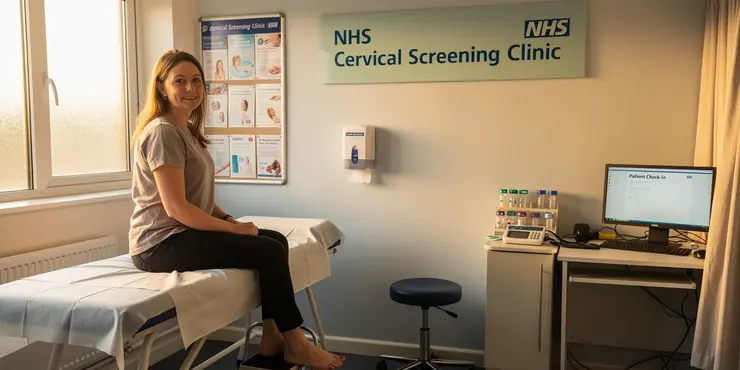
Cervical screening: what to expect | NHS
Relevance: 20%
-
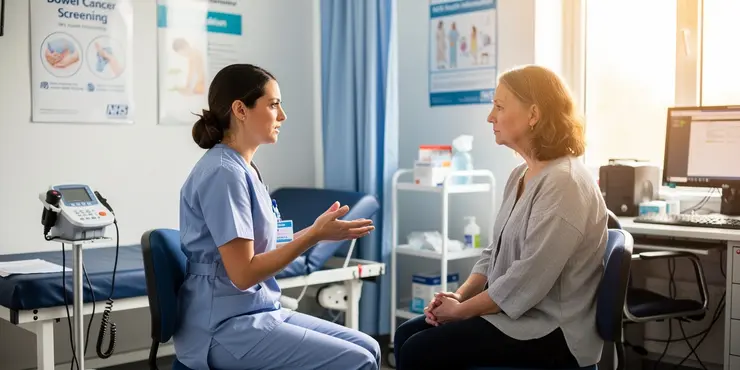
What kinds of cancer screening are available?
Relevance: 20%
-
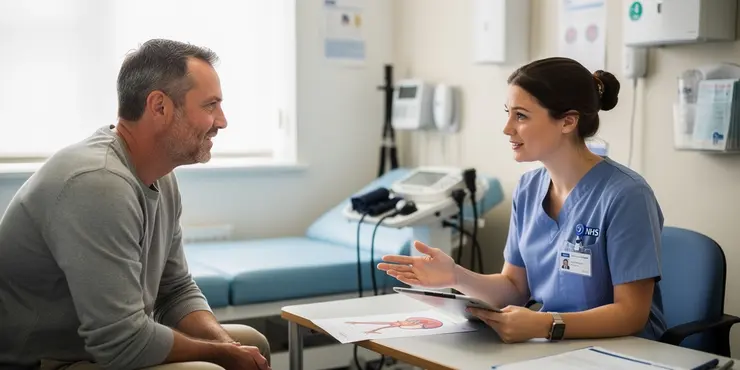
AAA (Abdominal aortic aneurysm) screening
Relevance: 20%
-
What are the limitations of type 1 diabetes screening?
Relevance: 20%
-

Do mosquito screens provide insulation benefits?
Relevance: 19%
-
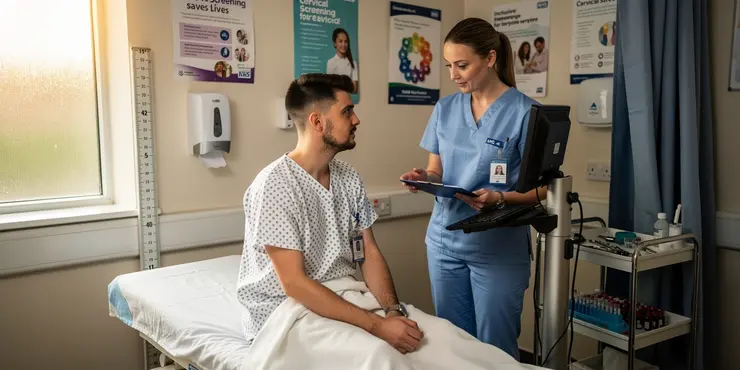
Cervical screening for transgender men | NHS
Relevance: 19%
-

Cervical screening: how it's done | NHS
Relevance: 19%
-
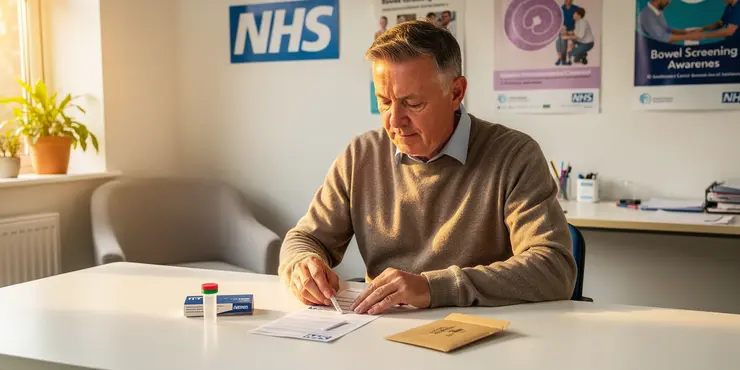
What are the recommendations for colorectal cancer screening?
Relevance: 19%
-
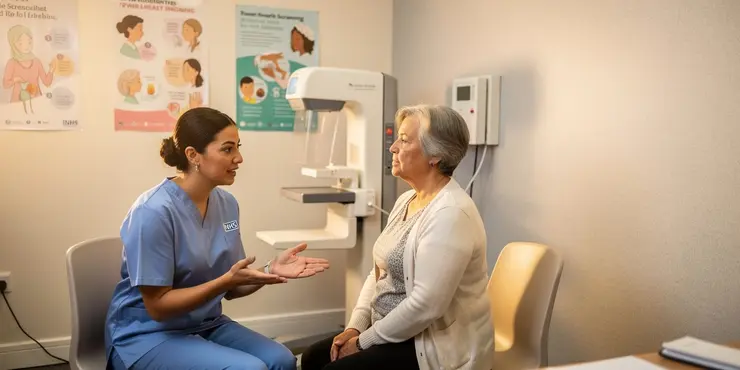
Tower Hamlets breast screening programme
Relevance: 19%
-

Cervical screening: what to expect | NHS
Relevance: 19%
-
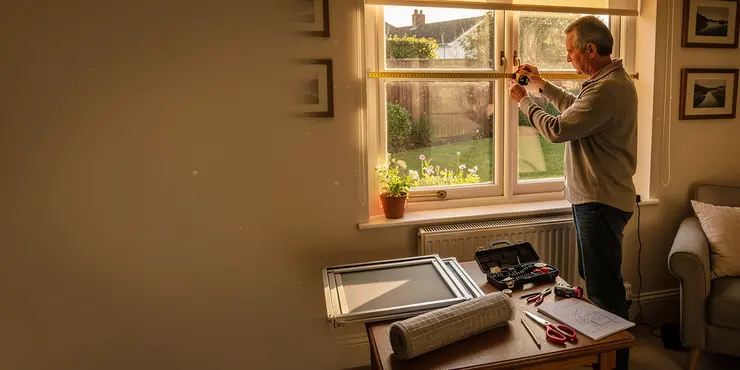
Can I install mosquito screens myself?
Relevance: 19%
-
Should I screen my child for type 1 diabetes?
Relevance: 19%
-

Can mosquito screens be used on doors as well?
Relevance: 19%
-
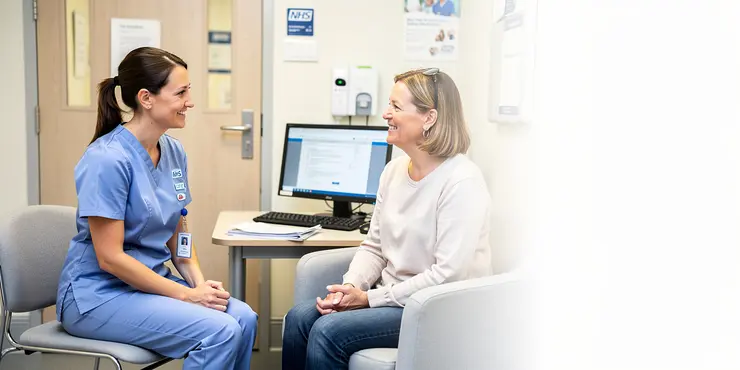
Health Screenings You Should Know About
Relevance: 19%
The Asylum Screening Interview
Purpose of the Asylum Screening Interview
The asylum screening interview is the first step in the process for anyone seeking asylum in the United Kingdom. The primary purpose of this initial interview is to gather basic information about the asylum seeker and to establish the individual’s identity. It is conducted by the Home Office and provides an opportunity for the applicant to disclose preliminary details regarding their background, journey to the UK, and reasons for seeking asylum. The interview does not assess the validity of the asylum claim but sets the groundwork for the more detailed substantive interview that follows.Preparation for the Interview
Applicants should come prepared for the asylum screening interview with any relevant documents that can establish their identity, such as passports, birth certificates, and any other travel documents. Interpreters are available upon request for those who are not fluent in English, and it is crucial to inform the Home Office in advance if an interpreter is needed. Additionally, applicants may wish to seek legal advice prior to the interview, although legal representation is not mandatory at this stage.During the Interview
During the screening interview, applicants will be asked to provide personal details including their name, date of birth, nationality, and contact information. They will also be questioned about their travel history, how they arrived in the UK, and whether they have applied for asylum in another country. The interviewer may take biometric data, such as fingerprints and photographs, for identification purposes. It is important to answer all questions truthfully, as inconsistencies can affect the outcome of the asylum claim.After the Interview
Following the asylum screening interview, applicants will be issued with an Application Registration Card (ARC), which proves their status as an asylum seeker in the UK. This card may be required to access certain services and supports available to asylum seekers. The next step in the process is the substantive interview, where the applicant’s reasons for seeking asylum will be examined in greater detail. The Home Office will notify the applicant of the date and location for this subsequent interview.Importance of the Screening Interview
The asylum screening interview is a critical step in the asylum application process in the UK, as it sets the stage for the substantive examination of the claim. While the screening interview itself does not determine the outcome, it is essential for ensuring that accurate and complete information is recorded from the outset. Proper preparation and honesty during this interview can significantly impact the efficiency and eventual success of the asylum claim.The Asylum Screening Interview
What is the Asylum Screening Interview For?
The asylum screening interview is the first step for people who want to ask for asylum in the UK. The main goal is to collect basic information about the person asking for asylum and their identity. The interview is done by the Home Office. It helps the person tell their story about their life, their journey to the UK, and why they need asylum. This interview doesn't decide if they can get asylum, but it helps set up the next important interview.Getting Ready for the Interview
People should bring important papers to the interview. These include things like passports or birth certificates. If someone doesn't speak English well, they can ask for a translator to help them. It's important to tell the Home Office before if they need a translator. People can also talk to a lawyer before the interview for advice, but they don't have to have a lawyer with them.What Happens During the Interview?
During the interview, people will be asked about their personal details. This includes their name, date of birth, and nationality. They will also be asked about how they traveled to the UK and if they asked for asylum in other countries before. The interviewer might take fingerprints and photographs for identification. It’s very important to tell the truth because any mistakes might cause problems later.After the Interview
After the interview, people will get an Application Registration Card (ARC). This card shows they are asking for asylum in the UK. They might need this card to get help and services. The next step is a more detailed interview where they will talk more about why they need asylum. The Home Office will let them know when and where this next interview will happen.Why the Screening Interview is Important
The asylum screening interview is a very important part of asking for asylum in the UK. It gets everything ready for the next big interview. Even though it doesn't decide if someone can get asylum, it’s important to give correct and complete information. Being prepared and honest can make the process smoother and increase the chances of a successful asylum claim.Frequently Asked Questions
What is the purpose of the asylum screening interview?
The asylum screening interview is the first step in the process of claiming asylum in the UK. It is used to gather basic information about you and your claim, determine your identity, and understand the reasons for your asylum claim.
What documents should I bring to the asylum screening interview?
You should bring any identification documents you have, such as your passport, birth certificate, or other national identity documents. You should also bring any supporting documents related to your asylum claim if you have any.
Do I need a lawyer for the asylum screening interview?
You do not need a lawyer for the screening interview, but you may choose to bring one if you wish. Additionally, having legal advice can be helpful for preparing for the interview and subsequent steps in the process.
How long does the asylum screening interview take?
The screening interview typically lasts between one to two hours but can vary depending on individual circumstances and the complexity of your case.
Will I be granted asylum immediately after the screening interview?
No, the screening interview is just the first step. The purpose is to gather initial information. A more detailed substantive interview will follow, where you will have the opportunity to fully explain your asylum claim.
What questions will I be asked during the asylum screening interview?
You will be asked questions about your personal details, how and when you arrived in the UK, your reasons for leaving your home country, and any other relevant information about your asylum claim.
Is it important to tell the truth during the asylum screening interview?
Yes, it is crucial to provide honest and accurate information. Providing false information can have serious consequences for your asylum claim.
What should I do if I do not understand a question during the interview?
If you do not understand a question, you should ask for clarification. It is important that you understand the questions so that you can provide accurate answers.
Will an interpreter be provided for the screening interview?
Yes, if you need an interpreter, one will be provided for you. It is important to inform the authorities if you require an interpreter and specify your preferred language.
What happens after the asylum screening interview?
After the screening interview, your case will be reviewed, and you will be scheduled for a substantive asylum interview. You will also receive an Asylum Registration Card (ARC) if you do not already have one.
Can I bring a friend or family member to the screening interview for support?
You may bring a friend or family member with you to the interview location, but they will not be allowed to participate in the interview itself. Only you, the interviewer, and your legal representative (if you have one) are permitted in the interview room.
Where will the asylum screening interview take place?
The asylum screening interview usually takes place at a Home Office screening unit or a designated location such as an Immigration Removal Centre, depending on your circumstances.
Can I reschedule my asylum screening interview?
It is important to attend your scheduled interview. If you are unable to attend for a legitimate reason, you should contact the Home Office as soon as possible to explain your situation and request a new appointment.
What should I do if I feel sick or unwell on the day of the interview?
If you are unwell on the day of your interview, you should contact the Home Office immediately to inform them of your condition and request guidance on how to proceed.
Will I receive a copy of the notes taken during my screening interview?
Yes, you should receive a copy of the notes taken during your screening interview. It is important to review these notes and inform the authorities if there are any errors or inaccuracies.
Why do people have an asylum screening interview?
The asylum screening interview is a meeting. It helps to find out why someone needs safety in a new country. It is important because it starts the process to see if a person can stay in the country.
Here are some tips if you have an asylum screening interview:
- Bring all important papers with you.
- It’s okay to ask questions if you don't understand.
- If you need help speaking, ask for an interpreter. They can help translate.
Remember, this interview is to help you find safety. Take your time and try your best to explain your situation.
The asylum screening interview is the first step if you want to ask for asylum in the UK. At this interview, people will ask you questions to get basic information about you. They want to know who you are and why you are asking for asylum.
What papers do I need for the asylum interview?
Bring your ID papers. This means things like your passport, birth certificate, or any other identity card. Also, if you have papers that help your asylum case, bring those too.
If reading is hard, try using a ruler or your finger to follow along. Draw pictures or use color to remember important things. You can also ask someone to help you read.
Do I need a lawyer when I talk about asking for asylum?
You do not need a lawyer for the interview. But, if you want, you can bring one. A lawyer can help you get ready for the interview and what happens next.
How long is the first asylum interview?
The first interview usually takes between one to two hours. This can change based on your situation and how complicated things are for you.
Will I get asylum right after my first interview?
No, this first meeting is just the start. It helps to get basic information. Later, there will be a longer meeting. Then, you can talk all about why you need asylum.
What questions will I answer at my asylum interview?
Someone will ask you questions about yourself. They will ask how you came to the UK and when. You will need to say why you left your own country and tell them anything else that is important about asking for asylum.
Should you tell the truth at an asylum meeting?
It's very important to tell the truth when you talk about why you need asylum. This meeting helps people understand your story and how they can help. If you tell the truth, it makes it easier for everyone.
Here are some tips that might help:
- Think about your story before you go to the meeting.
- You can write down what you want to say.
- If you find it hard to speak, ask if you can bring someone who helps you feel calm.
- It's okay to ask the person at the meeting to repeat or explain things.
Remember, being honest helps you get the support you need.
Yes, it is very important to tell the truth. If you do not tell the truth, it can cause big problems for your asylum request.
What can I do if I don't understand a question in an interview?
If you don't understand a question in an interview, you can:
- Ask the person to say the question again. You can say, "Can you please repeat the question?"
- Ask the person to say it in a different way. You can say, "Can you ask the question in another way?"
- Take a deep breath and stay calm. It's okay to ask for help.
- Use a notebook to write down what you hear. It can help you remember the question.
- Try to explain what you do understand. You can say, "I think you're asking about..."
If you don't get a question, ask someone to explain it to you. It's important to understand so you can answer right.
Will there be someone to help with language at the interview?
If you need someone to help you understand what people are saying in another language, we can get someone for you.
It is important to tell us if you need this help. Let us know what language you speak.
What happens after the first asylum interview?
After your first meeting, you will wait for a decision. This is called an "interview." A decision might take some time.
What can you do while you wait?
-
Talk to a helper: Find someone who knows about asylum, like a support worker, lawyer, or charity. They can explain what might happen next.
-
Stay in touch: Check your mail regularly. You might get letters about your case.
-
Ask questions: If you don't understand something, ask someone to help explain it.
-
Stay calm: Decisions can take time, but try to stay positive and patient.
Get more support:
Use online tools or visit local support centers to find more help. They can provide information and answer your questions.
After the first interview, your case will be looked at again. Then, you will have a big asylum interview. You will also get an Asylum Registration Card (ARC) if you don't already have one.
Can I bring a friend or family member to help me at the interview?
Yes, you can bring someone with you to help. Bringing a friend or family member can make you feel better and less nervous. They can sit with you and give you support.
Here are some tips:
- Tell the interview person you will bring someone.
- Choose a friend or family member who makes you feel calm and happy.
- Ask your friend or family member to help you remember things or write notes.
You can take a friend or family member with you to the interview place. But they cannot join the interview with you. Only you, the person asking questions, and your lawyer (if you have one) can be in the interview room.
Where will the asylum screening interview happen?
The interview will happen at a place called a 'screening unit'.
Don't worry, they will tell you where to go for your interview.
If you need help, you can ask someone to come with you.
You can bring things to help you feel relaxed, like a favorite toy or object.
The first meeting about asking for asylum usually happens at a special office called a Home Office screening unit. Sometimes it can be at another place like an Immigration Removal Centre. This depends on your situation.
Can I change the date for my asylum screening interview?
Yes, you can ask to change the date. Here is how:
- Tell the right office as soon as you know you need a different date.
- Explain why you need to change the date.
- It's best to write a letter or send an email.
- Ask someone you trust for help if you find it hard to write.
- Make sure you keep a copy of what you sent.
If they say "yes", they will give you a new date. If they say "no", try to go to your first interview.
You can also use a calendar or an app to remind you of your interview date.
It is important to go to your interview. If you can't go for a good reason, you should tell the Home Office right away. Explain why you can't make it and ask for a new time.
What do I do if I feel sick on the day of the interview?
If you feel sick on the day of your interview, here are some steps you can take:
- Tell the person who set up the interview as soon as you can.
- You can call or send an email to explain that you are not feeling well.
- Ask if you can have the interview on a different day.
If you find talking on the phone hard, ask someone you trust to help you.
If you feel too sick to speak or write, you could ask someone else to talk to them for you.
If you feel sick on the day of your interview, tell the Home Office right away. Ask them for help on what to do next.
Will I get a copy of the notes from my interview?
After your meeting, you might want to look at the notes. You can ask if you can get a copy. If you have trouble remembering things, you can write down key points or ask for help from someone you trust. Recording the meeting (with permission) can also help you remember.
Yes, you should get a copy of the notes from your interview. It is important to look at these notes. Tell someone if you see any mistakes.
Useful Links
This website offers general information and is not a substitute for professional advice.
Always seek guidance from qualified professionals.
If you have any medical concerns or need urgent help, contact a healthcare professional or emergency services immediately.
Some of this content was generated with AI assistance. We’ve done our best to keep it accurate, helpful, and human-friendly.
- Ergsy carfully checks the information in the videos we provide here.
- Videos shown by Youtube after a video has completed, have NOT been reviewed by ERGSY.
- To view, click the arrow in centre of video.
- Most of the videos you find here will have subtitles and/or closed captions available.
- You may need to turn these on, and choose your preferred language.
- Go to the video you'd like to watch.
- If closed captions (CC) are available, settings will be visible on the bottom right of the video player.
- To turn on Captions, click settings .
- To turn off Captions, click settings again.
More Items From Ergsy search
-

The asylum screening interview
Relevance: 100%
-

An introduction to claiming asylum in the UK
Relevance: 58%
-

New Asylum Seekers Legislation Sparks Nationwide Debate
Relevance: 34%
-

An Interview With JC About His Leukemia And His Leukemia Treatment
Relevance: 22%
-

Derbyshire Diabetic Eye Screening - Diabetic Eye Screening
Relevance: 22%
-

Derbyshire Diabetic Eye Screening - Your Screening Appointment
Relevance: 22%
-

What is cancer screening?
Relevance: 21%
-

Cervical screening: Q&A | NHS
Relevance: 21%
-

Diabetes Eye Screening
Relevance: 21%
-

AI Breast Cancer Screening in the UK
Relevance: 21%
-

Bowel cancer screening: Alan Titchmarsh and Tommy Walsh | NHS
Relevance: 21%
-

NHS breast cancer screening
Relevance: 20%
-

Are there eco-friendly mosquito screen options?
Relevance: 20%
-

Are mosquito window screens effective in the UK?
Relevance: 20%
-

Are Mosquito window screens effective?
Relevance: 20%
-

Are there retractable mosquito screens available?
Relevance: 20%
-

The NHS is #StillHereToHelp with cervical screening
Relevance: 20%
-
Is screening painful or risky for my child?
Relevance: 20%
-

What is a skin cancer screening?
Relevance: 20%
-

How do I maintain my mosquito screens?
Relevance: 20%
-

Can pets damage mosquito screens?
Relevance: 20%
-

NHSGGC - Cervical Cancer Screening - English
Relevance: 20%
-

What is cervical screening (smear test)?
Relevance: 20%
-

Do mosquito screens add value to my home?
Relevance: 20%
-

Is genetic screening available for cancer risk?
Relevance: 20%
-

Are mosquito screens effective against midges?
Relevance: 20%
-

Cervical screening: what to expect | NHS
Relevance: 20%
-

What kinds of cancer screening are available?
Relevance: 20%
-

AAA (Abdominal aortic aneurysm) screening
Relevance: 20%
-
What are the limitations of type 1 diabetes screening?
Relevance: 20%
-

Do mosquito screens provide insulation benefits?
Relevance: 19%
-

Cervical screening for transgender men | NHS
Relevance: 19%
-

Cervical screening: how it's done | NHS
Relevance: 19%
-

What are the recommendations for colorectal cancer screening?
Relevance: 19%
-

Tower Hamlets breast screening programme
Relevance: 19%
-

Cervical screening: what to expect | NHS
Relevance: 19%
-

Can I install mosquito screens myself?
Relevance: 19%
-
Should I screen my child for type 1 diabetes?
Relevance: 19%
-

Can mosquito screens be used on doors as well?
Relevance: 19%
-

Health Screenings You Should Know About
Relevance: 19%


